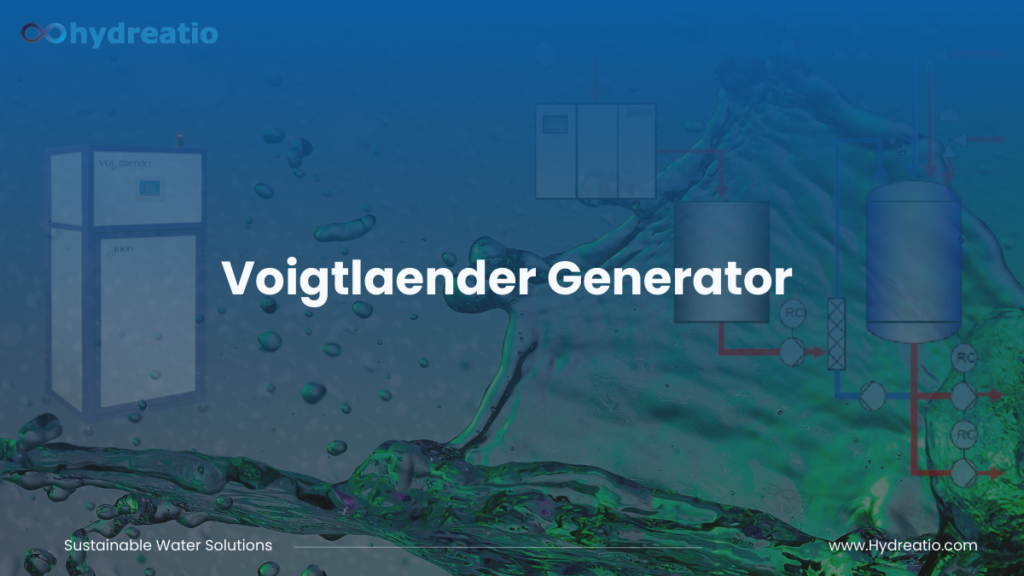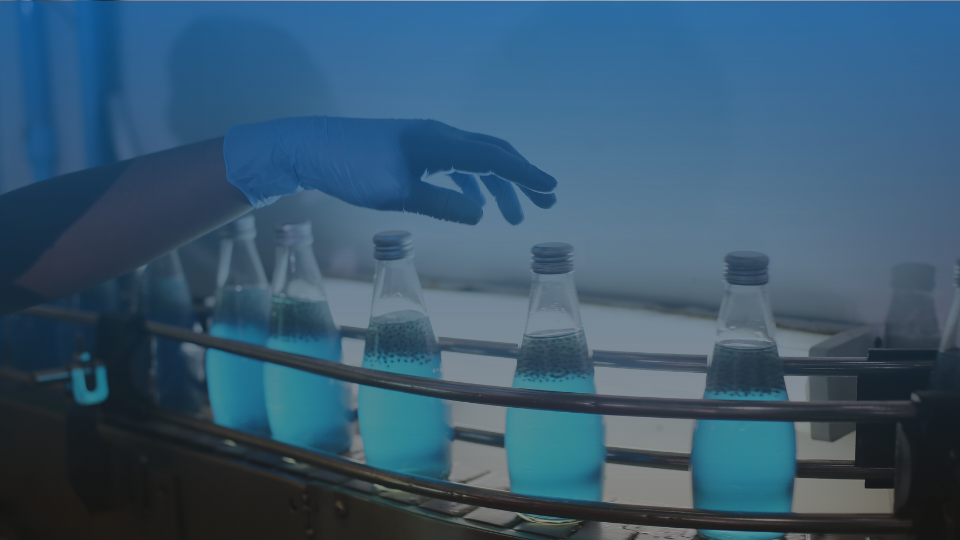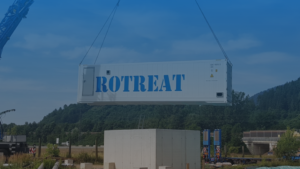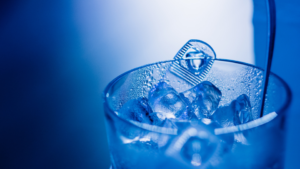Introduction: Pure Production - The Role of Disinfection and Cleaning in the Beverage Industry
In the beverage industry, maintaining impeccable hygiene standards is not just a regulatory requirement; it is the backbone of product safety, quality, and consumer trust. Whether producing bottled water, soft drinks, or alcoholic beverages, the cleanliness of production facilities and equipment directly impacts the integrity of the final product. Cleaning and Disinfection (CIP/CLP) processes play a pivotal role in ensuring that every batch is free from contamination, safeguarding not only public health but also the reputation of beverage brands. However, the demands on the beverage industry are growing. Rising consumer expectations for safe and sustainably produced beverages, combined with stringent national and international standards, have placed hygiene at the forefront of operational priorities. Poor disinfection practices can lead to bacterial contamination, product recalls, and even regulatory penalties—serious consequences for businesses in this highly competitive sector. As such, effective and efficient disinfection has become a cornerstone of successful beverage production, requiring innovative solutions that not only meet compliance but also address the environmental and cost challenges facing modern manufacturers. The journey to pure production is no longer about simply cleaning; it’s about revolutionizing how the industry approaches hygiene to deliver safer products, lower costs, and a reduced environmental footprint. This paradigm shift calls for advanced technologies that eliminate inefficiencies and embrace sustainability without compromising on quality.
The Challenges of Cleaning and Disinfection in the Beverage Industry
The beverage industry faces unique challenges when it comes to maintaining hygiene and cleanliness throughout production processes. Beverage manufacturing involves handling a diverse range of ingredients, from sugars and syrups to acids and dairy products, each leaving residues that can harbor harmful microorganisms if not properly cleaned. These residues, coupled with the intricate designs of equipment such as tanks, pipes, and bottling systems, make effective disinfection a complex task.
Adding to these challenges is the high frequency of cleaning cycles required to maintain compliance with hygiene standards, often leading to significant downtime and loss of productivity. Traditional methods heavily reliant on chemicals further complicate the equation, as they not only increase costs but also pose risks to worker safety and the environment. High water and energy consumption during cleaning processes exacerbate the operational inefficiencies, making it difficult for manufacturers to balance hygiene with sustainability and profitability.
Furthermore, with the beverage industry operating under strict regulatory oversight, including frameworks such as ISO 22000, HACCP, and FDA guidelines, failing to meet sanitation standards can result in severe penalties, product recalls, or even plant shutdowns. As consumer expectations rise for eco-friendly and safe products, manufacturers must also navigate the growing demand for sustainable cleaning solutions. These challenges underscore the urgent need for innovative, efficient, and eco-conscious approaches to cleaning and disinfection, paving the way for a new era of hygiene in the beverage industry.
Compliance with National and International Standards
Maintaining compliance with national and international hygiene standards is a critical component of operations in the beverage industry. Regulatory frameworks such as ISO 22000, HACCP (Hazard Analysis and Critical Control Points), and FDA guidelines are designed to ensure that products meet strict safety, quality, and sanitation requirements. These standards are not optional; they are mandatory for businesses aiming to sell their products in competitive global markets.
Achieving and maintaining compliance can be a complex and resource-intensive process. Beverage producers must implement stringent cleaning and disinfection protocols across every stage of production, from raw material handling to bottling and packaging. Regular testing, documentation, and audits are required to ensure that facilities remain in line with evolving regulations, which vary across regions. For instance, European Union regulations emphasize sustainability and chemical usage limits, while U.S. standards may focus on microbial control and allergen management.
Non-compliance can have devastating consequences. A single failure in sanitation protocols can result in product contamination, leading to recalls, reputational damage, and even legal action. Furthermore, the cost of rectifying non-compliance issues often surpasses the initial investment in effective cleaning systems.
As sustainability becomes a growing concern, compliance now also includes meeting environmental standards. Manufacturers are expected to minimize their ecological impact by reducing water, chemical, and energy use in cleaning processes. Balancing these demands with operational efficiency requires the adoption of advanced technologies and best practices. By addressing these compliance challenges proactively, beverage producers not only safeguard their operations but also strengthen consumer trust and industry credibility.
The Problems in Current Industry Practices
While cleaning and disinfection are indispensable to beverage production, traditional industry practices are fraught with inefficiencies and challenges that increasingly fall short of the demands of modern manufacturing. These challenges span operational, environmental, and regulatory dimensions, creating a pressing need for more advanced and sustainable approaches. A significant issue lies in the heavy reliance on chemical-intensive cleaning processes. These chemicals, while effective in microbial control, pose a host of problems: they can corrode sensitive equipment, require stringent handling and disposal protocols, and risk leaving behind harmful residues that compromise product safety. This is particularly problematic in an industry where even minor contamination can lead to widespread recalls, reputational damage, and financial loss.
High water and energy consumption further compound the inefficiencies of traditional cleaning methods. CIP (cleaning-in-place) systems often rely on extensive rinse cycles and heated water, leading to excessive utility costs and resource wastage. Extended cleaning cycles also increase operational downtime, reducing production capacity—a critical bottleneck in high-demand periods. For an industry already operating on tight margins, these inefficiencies represent a substantial barrier to profitability and growth. Environmental impact presents another critical challenge. The excessive use of chemicals, water, and energy contributes to pollution, carbon emissions, and resource depletion, which are increasingly scrutinized by regulatory bodies and consumers alike. Wastewater containing high chemical concentrations requires additional treatment, further escalating costs and complicating compliance with environmental regulations. Traditional cleaning practices also struggle to keep pace with evolving national and international standards. Regulatory frameworks now demand not only stringent hygiene but also environmentally conscious practices, such as reduced chemical usage and improved wastewater management. Failure to comply with these standards can result in costly penalties, legal actions, and lost market opportunities.
Finally, the human element cannot be ignored. Workers exposed to hazardous cleaning agents face health risks that can lead to absenteeism, medical expenses, and reduced workplace safety. Additionally, the reliance on manual oversight in certain cleaning processes introduces variability and increases the risk of human error. In sum, the traditional cleaning and disinfection practices in the beverage industry are no longer sustainable. They fail to meet the intersecting challenges of operational efficiency, environmental sustainability, and regulatory compliance, all while placing undue strain on resources and workers. This underscores the urgent need for innovative solutions that address these issues holistically, paving the way for a more efficient, sustainable, and compliant future in beverage production.
Innovative Solutions for the Beverage Industry
As the challenges of traditional cleaning and disinfection methods continue to mount, the beverage industry is increasingly turning toward innovative solutions that offer efficiency, sustainability, and compliance. These new technologies aim to revolutionize how manufacturers approach hygiene, enabling them to address operational inefficiencies and environmental concerns without compromising product safety or quality.
One of the most promising advancements is the shift toward near-zero chemical cleaning processes. These solutions leverage cutting-edge disinfection technologies such as advanced oxidation, UV systems, and other chemical-free approaches to achieve superior microbial control while drastically reducing chemical dependency. This not only minimizes environmental impact but also lowers costs associated with chemical procurement, storage, and disposal. Resource efficiency is another cornerstone of modern solutions. By optimizing water and energy use, these systems significantly reduce the resource footprint of cleaning cycles. For instance, advanced CIP technologies are now capable of reclaiming and reusing rinse water, cutting overall water consumption while maintaining hygiene standards. Similarly, innovations in energy management ensure that cleaning processes are faster and more energy-efficient, reducing both utility costs and production downtime.
Automation and digital monitoring have also emerged as game-changers. Smart disinfection systems equipped with sensors and IoT capabilities allow real-time tracking of hygiene levels, ensuring compliance with regulatory standards while eliminating the guesswork in cleaning cycles. This precision reduces overuse of resources and ensures consistent results across production lines. Moreover, these solutions align seamlessly with the growing consumer demand for sustainability. Adopting eco-friendly cleaning and disinfection practices not only enhances a company’s brand image but also positions it as a leader in corporate responsibility. In a competitive market, this differentiation can translate into stronger consumer loyalty and expanded market opportunities.
These innovations set the stage for companies to transition from traditional, resource-intensive practices to more sustainable, cost-effective, and reliable methods of maintaining hygiene. By investing in such technologies, beverage manufacturers can future-proof their operations against the evolving challenges of a dynamic industry.
Voigtlaender Solutions: Redefining Hygiene in the Beverage Industry

Amid the industry’s growing challenges, Hydreatio GmbH’s Voigtlaender Solutions stand out as a beacon of innovation, efficiency, and sustainability. Designed specifically to address the unique demands of the beverage industry, the Voigtlaender Generator 3.0 offers a transformative approach to cleaning and disinfection processes, combining state-of-the-art technology with eco-conscious principles.
One of the key advantages of the Voigtlaender Generator 3.0 is its near-zero chemical usage. Unlike traditional cleaning methods that rely heavily on harsh chemicals, this advanced system utilizes cutting-edge disinfection technologies to achieve exceptional microbial control without the associated risks of residue, equipment corrosion, or environmental harm. By reducing chemical dependency, it not only protects workers and equipment but also minimizes the need for costly chemical procurement and disposal. The generator is also engineered for resource efficiency, significantly reducing water and energy consumption during cleaning cycles. This leads to shorter cleaning times, reduced downtime, and lower operational costs—critical factors for manufacturers looking to optimize production capacity. Its ability to operate efficiently without compromising hygiene standards makes it a valuable asset for both small-scale producers and large beverage facilities.
Voigtlaender Solutions also excel in sustainability, aligning with global environmental standards and corporate responsibility goals. The system’s minimal resource footprint helps beverage manufacturers meet stringent regulatory requirements while simultaneously enhancing their green credentials. For an industry increasingly under scrutiny for its environmental practices, adopting such a solution not only ensures compliance but also strengthens brand positioning in the eyes of eco-conscious consumers.
Moreover, the system’s versatility allows it to be seamlessly integrated into existing cleaning processes across various beverage production lines, from soft drinks to alcoholic beverages. Its robust design and proven track record in the industry make the Voigtlaender Generator 3.0 a trusted partner for companies aiming to achieve the perfect balance between hygiene, efficiency, and sustainability.
Incorporating Voigtlaender Solutions into cleaning protocols represents a forward-thinking investment in the future of beverage manufacturing. By addressing operational inefficiencies, reducing environmental impact, and ensuring compliance with the highest hygiene standards, Hydreatio GmbH’s innovative offerings are paving the way for a cleaner, greener, and more efficient beverage industry.
Conclusion: A Path Toward Sustainable Hygiene in the Beverage Industry
The beverage industry is at a critical juncture where hygiene practices must evolve to meet the intersecting demands of operational efficiency, regulatory compliance, and environmental sustainability. Traditional cleaning and disinfection methods, while effective in the past, no longer align with the priorities of modern manufacturing or the expectations of increasingly conscious consumers. As the stakes rise, the adoption of innovative and sustainable solutions is no longer optional—it is essential. By addressing the challenges of excessive chemical usage, high resource consumption, and environmental impact, forward-thinking technologies like the Voigtlaender Generator 3.0 are redefining hygiene standards in the industry. However, achieving meaningful progress requires a holistic approach that begins with understanding the limitations of current practices and embracing advancements that prioritize long-term gains over short-term fixes.
Manufacturers who invest in sustainable cleaning solutions not only future-proof their operations but also position themselves as leaders in an industry facing mounting scrutiny. Cleaner, greener technologies enhance operational efficiency, reduce costs, and elevate brand reputation, offering a competitive edge in an increasingly crowded market. Moreover, compliance with stringent hygiene and environmental standards becomes more manageable, enabling companies to focus on innovation and growth without fear of regulatory setbacks. The journey toward sustainable hygiene is about more than just technology; it is about a shift in mindset. Beverage manufacturers must view sustainability not as a challenge but as an opportunity to build resilient systems that protect both public health and natural resources. By leveraging cutting-edge solutions like those offered by Hydreatio GmbH, the industry can deliver products that are not only safe and high-quality but also environmentally responsible.
In an era defined by change, the beverage industry has the chance to lead by example. Through innovation, collaboration, and commitment, it can ensure a future where cleanliness, efficiency, and sustainability are not just ideals but standard practices. The time to act is now, and the tools to succeed are within reach.


